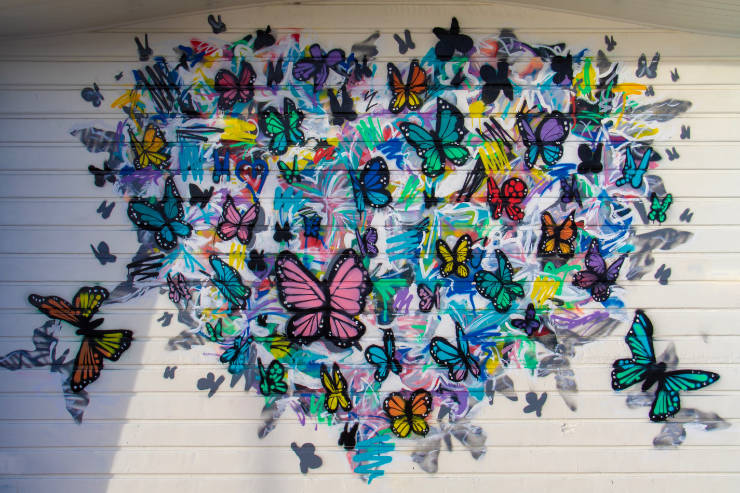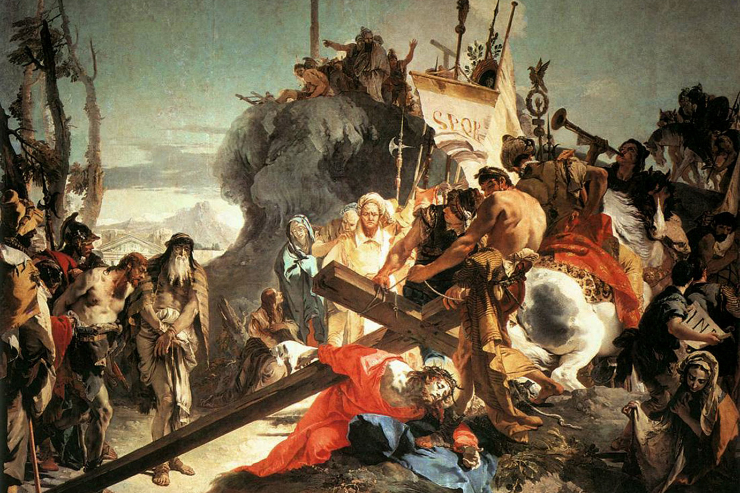Photo by Nick Fewings on Unsplash
There are probably five or six posts swirling in my head about Encanto. Don’t worry—I hate spoilers, so you can keep reading, whether or not you’ve seen it. I have to admit: the trailer didn’t pull me in and I thought it looked a little odd. My sister’s endorsement convinced me I should give it a chance, and I am glad I did.
It doesn’t spoil anything to say that Encanto is about a family that has been given magical gifts. They live in a magical house, and each member of the family has a unique gift that is their own. The problem is … what happens when the gift becomes more important than the family member themselves?
It’s not a bad thing to have talents or proficiencies. The issue is when love for the gifts supersedes love for the individual. Family members become objectified. They become abstractions — you’re the pretty one, you’re the strong one. The family itself becomes an abstraction —- “family” is vital and important, but not family members individually. And that destroys families… not just in movies.
Do I love that person for who they are, or for what they do for me? Do I love him as a human being, or do I love his gifts and abilities? Would I love them if they were broken? Can I love them if they aren’t as perfect or strong as I think they are?
It’s easier to love an abstraction. I can love my neighbor, my church, and even my family as an abstraction or a generalization. But what about as individuals? People who need me, who bother me, who fail me, or who think differently than me?
It’s easier to hate an abstraction, too. If I do not know you individually, if I do not try to love you individually, it is far easier to judge you. I can put people in boxes with labels, until they become not individuals, but abstractions that can be loved or hated. He’s the divorced person. She’s the “Traddie.” You’re the “Trump-er.” He’s the “Never Trump-er.” She’s the divorced person, he’s the failure, she’s the lesbian, he’s the alcoholic.
We do it with sins, with personality types, and with gifts. We do it with vocations and occupations. After awhile, we have separated ourselves from the living, breathing human beings to such an extent that we don’t even notice we are passing judgment, objectifying, and generalizing.
Perhaps we do it to ourselves too. We are grateful and proud of our talents, gifts, and work to such an extent that we forget those things do not define us. Or we are so ashamed of our sins and our past that we forget those things do not define us, either.
You are a child of God. That is who you are. That is what defines you. Not your work, or your talents, or your sins. Father Jacques Phillipe reminds us, “Here is the infinite mercy of God, who calls us not because of our merits but purely out of love.” He points out, “Even before the gift of baptism and the particular callings that can follow from it – to marriage, to the consecrated life, to some apostolate or ministry – just to be a creature of God is already a great and beautiful vocation” (emphasis mine).
Your boss, the person that trolls you on social media, the neighbor that votes differently than you, the relative who is gay, your best friend, the person who sits next to you in church… they are all children of God, too. And while it’s tempting to see them as what they do, how they vote, their sins, idiosyncrasies, or talents… well, perhaps we need to ask God to help us see them the way He does.
As his children.
The protagonist in Encanto is named Mirabel. Mira in Spanish means sight. May we all strive to have the sight of God when it comes to seeing our neighbor, family members, enemies…and ourselves.
“See what kind of love the Father has given to us, that we should be called children of God; and so we are.” (1 John 3:1)














